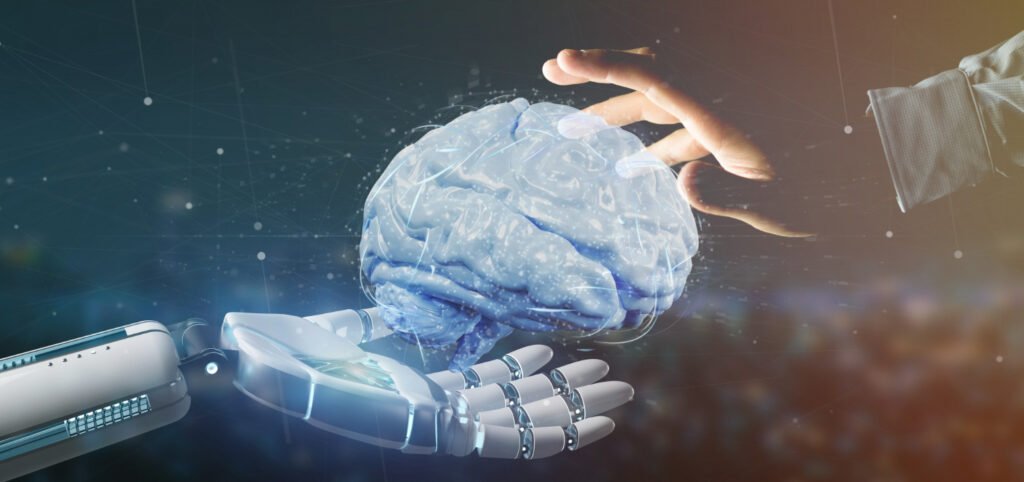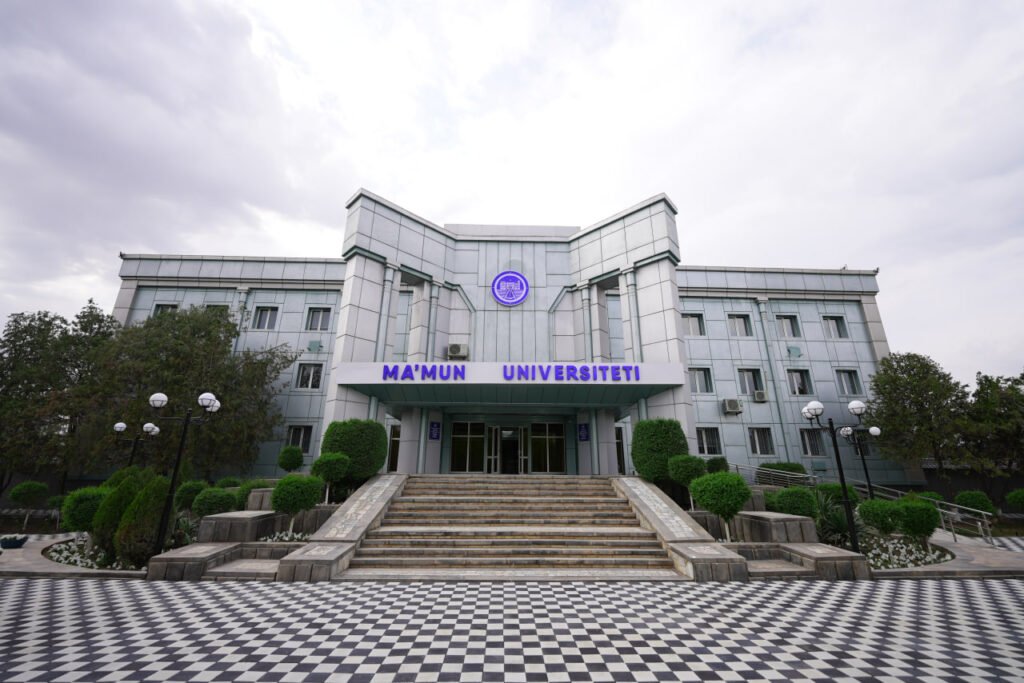Artificial intelligence (AI) is no longer a concept confined to science fiction movies—it has seamlessly integrated into our daily lives. From smart assistants like Siri and Google Assistant to personalized recommendations on platforms like Netflix and Amazon, AI is everywhere, shaping the way we live, work, and interact with technology.
Today, AI is one of the fastest-growing fields in the world, playing a crucial role across industries such as healthcare, education, cybersecurity, e-commerce, and manufacturing. Thanks to rapid advancements in deep learning and natural language processing (NLP), machines can now understand and analyze data in ways previously unimaginable. These breakthroughs have paved the way for unprecedented innovations that continue to reshape our world.
However, with these rapid advancements come critical questions about AI’s impact on the job market and various academic disciplines. Will AI create new job opportunities, or will it replace traditional roles? Which fields have already embraced AI, and how can professionals prepare for the future?
In this article, we will explore the key fields of artificial intelligence, the academic disciplines that heavily rely on AI, and the most promising career paths that are expected to evolve alongside this technology. Additionally, we will discuss the challenges and opportunities AI presents and how individuals can gear up for this new digital era.
Stay with us as we uncover how AI can shape your career and the future of work!
Key Fields of Artificial Intelligence
Artificial intelligence has become an integral part of various industries, revolutionizing workflows, enhancing efficiency, and boosting productivity. From healthcare to cybersecurity, AI is reshaping the future of multiple sectors. Here are the most prominent fields where AI is making a significant impact:v
1. AI in Healthcare and Medicine
Artificial intelligence is revolutionizing the medical field by enhancing diagnostics and treatment procedures. Some of its key applications include:
- Disease Diagnosis: AI-powered systems analyze medical images (such as X-rays and MRIs) with higher accuracy using deep learning algorithms.
- Surgical Robotics: AI-assisted robotic surgery enables precision and minimizes risks in complex procedures.
- Big Data Analysis in Medicine: AI is used to develop new drugs, improve research methodologies, and personalize treatments for patients.
2. AI in Education
AI has become a fundamental tool in modernizing education and personalizing learning experiences. Its major applications include:
- Personalized Learning Paths: AI adapts learning materials to fit each student’s abilities and needs.
- Smart Learning Systems: AI-powered platforms analyze student performance and provide tailored recommendations.
- Enhanced Remote Learning: AI-driven virtual assistants and smart tutoring systems improve the online learning experience.
3. AI in Cybersecurity
With the rise of cyber threats, AI has become essential in protecting digital assets. Some key applications include:
- Threat Detection: AI identifies abnormal patterns in network traffic and detects potential cyberattacks.
- Fraud Prevention: AI analyzes user behavior to identify suspicious activities.
- Advanced Encryption: AI strengthens data security by improving encryption techniques and access control measures.
4. AI in Business and Management
AI is optimizing business operations, increasing efficiency, and improving customer experiences. Key applications include:
- Data-Driven Decision Making: AI analyzes vast datasets to provide strategic business insights.
- Digital Marketing Optimization: AI enhances targeted advertising by analyzing consumer behavior and preferences.
- AI-Powered Customer Service: Chatbots and virtual assistants handle customer inquiries efficiently, reducing response times.
5. AI in Transportation and Mobility
AI is transforming the transportation industry by improving mobility solutions. Notable applications include:
- Autonomous Vehicles: Self-driving cars utilize AI to navigate roads and make real-time driving decisions.
- Traffic Management: AI-powered systems optimize traffic flow and reduce congestion.
- Public Transport Efficiency: AI analyzes travel data to enhance public transportation systems, making them more time- and cost-effective.
6. AI in Manufacturing and Industry
AI is reshaping the industrial sector, leading to smarter production and increased efficiency. Its key applications include:
- Smart Robotics: AI-driven robots enhance productivity and reduce human error in manufacturing processes.
- Predictive Maintenance: AI detects equipment failures before they happen, reducing downtime and repair costs.
- Quality Control: AI-powered analytics improve product quality by identifying defects in real time.
7. AI in Arts and Creativity
AI is making its way into creative fields, proving that it can contribute to art, music, and content creation. Some of its applications include:
- AI-Generated Art and Music: Machine learning models replicate artistic styles and compose unique musical pieces.
- Graphic Design and Branding: AI assists in designing logos, animations, and visual content.
- Automated Content Writing: AI-powered tools generate articles, stories, and scripts that closely mimic human writing styles.
The Future of Artificial Intelligence Specializations
With the rapid advancements in artificial intelligence (AI) technology, this field has become one of the most promising career paths for the future. The demand for AI experts is growing across various industries, and in the coming years, there will be a significant expansion in AI-related jobs. This makes studying AI a strategic choice for students looking to build a strong and future-proof career.
1. University Specializations Focused on AI
As the demand for AI professionals increases, many universities worldwide are now offering specialized programs in this field. Some of the most notable AI-related disciplines include:
- Artificial Intelligence Engineering – Focuses on designing and developing AI systems, including machine learning algorithms and big data processing.
- Data Science and Big Data Analytics – Involves using AI to extract and analyze vast amounts of data to support data-driven decision-making.
- Robotics and Automation – Studies how AI can be integrated into robotic systems to enhance industrial and service-oriented processes.
- Machine Learning (ML) – Centers on training computers to recognize patterns and make data-based decisions.
- Natural Language Processing (NLP) – Specializes in developing systems capable of understanding and analyzing human language, such as real-time translation applications and smart assistants like Siri and Alexa.
2. Essential Skills for Success in AI Fields
To excel in AI, students need to develop a combination of technical expertise and critical thinking abilities. Some of the most essential skills for AI professionals include:
- Programming Proficiency: Languages like Python, R, and Java are widely used for developing AI algorithms.
- Mathematics and Statistics Knowledge: Linear algebra, probability, and statistics play a crucial role in machine learning and data analysis.
- Big Data Handling: Most AI applications rely on processing massive datasets, requiring knowledge of big data frameworks.
- Critical Thinking and Problem-Solving: AI development requires the ability to analyze complex problems and design innovative solutions.
- Deep Learning and Neural Networks: Understanding these technologies is key to improving the performance of AI-driven systems.
- Effective Communication and Teamwork: AI projects often require collaboration with multidisciplinary teams.
3. The Impact of AI on Software Development and Technology
Artificial intelligence is transforming modern software development, enhancing efficiency, and creating smarter user experiences. Some key areas where AI is making a difference include:
- Software Development Optimization: AI can detect coding errors and suggest fixes, accelerating the software development lifecycle.
- Cybersecurity: AI-powered systems analyze attack patterns and detect cyber threats faster and more accurately.
- Game Development and Virtual Reality: AI is used to improve in-game interactions and create more intelligent and responsive virtual characters.
- Smart Assistants and Robotics: AI-driven assistants like Google Assistant, Siri, and Alexa are becoming more advanced, while AI-powered robots are being utilized in businesses and homes.
- Big Data Analytics: AI helps companies extract meaningful insights from large datasets, enabling strategic decision-making.
The Future of AI: Opportunities and Challenges
As artificial intelligence continues to advance, its influence on various industries is expected to grow exponentially, making AI-related specializations highly promising with exceptional career prospects. Therefore, students aspiring to enter this field should focus on developing their technical skills and adapting to emerging innovations to ensure a successful career.
Final Thoughts
With the rapid progress of artificial intelligence, it is evident that AI is not just a passing trend—it is a revolution transforming the way we live and work. In this article, we explored the most critical AI applications across industries such as healthcare, education, cybersecurity, and business, along with insights into the future of AI-related fields and the jobs that will emerge or evolve as a result.
While AI presents challenges, it also creates numerous opportunities. Some traditional jobs may disappear, but new, high-demand roles will emerge, requiring advanced skills in data analysis, programming, and AI system development. The key to thriving in this new era is continuous learning and staying ahead of technological advancements. By embracing AI and acquiring the necessary expertise, individuals can secure a competitive edge and build a successful career in the future of artificial intelligence.









